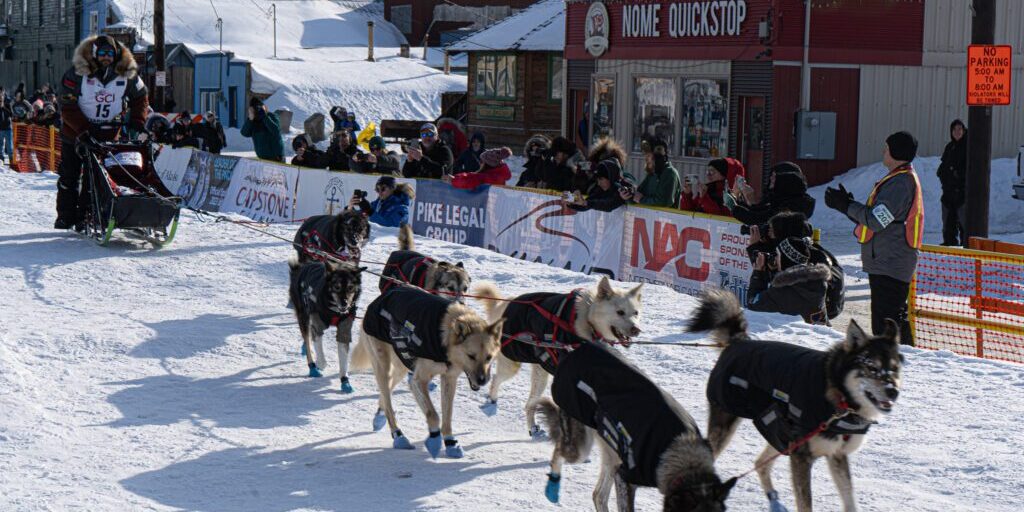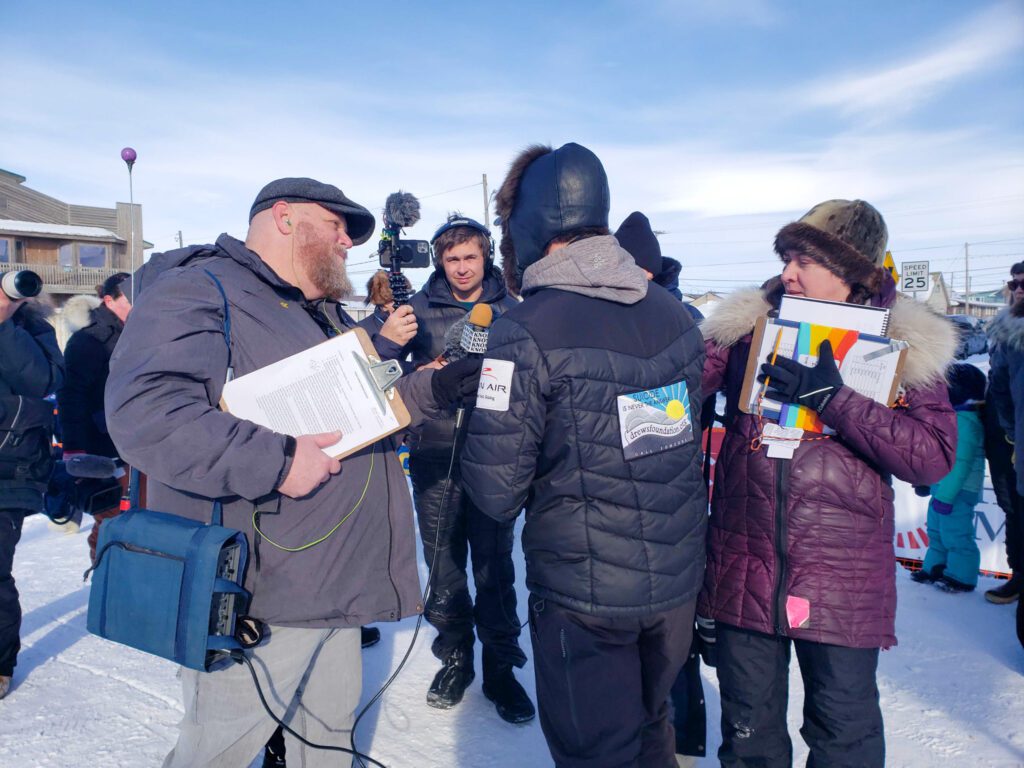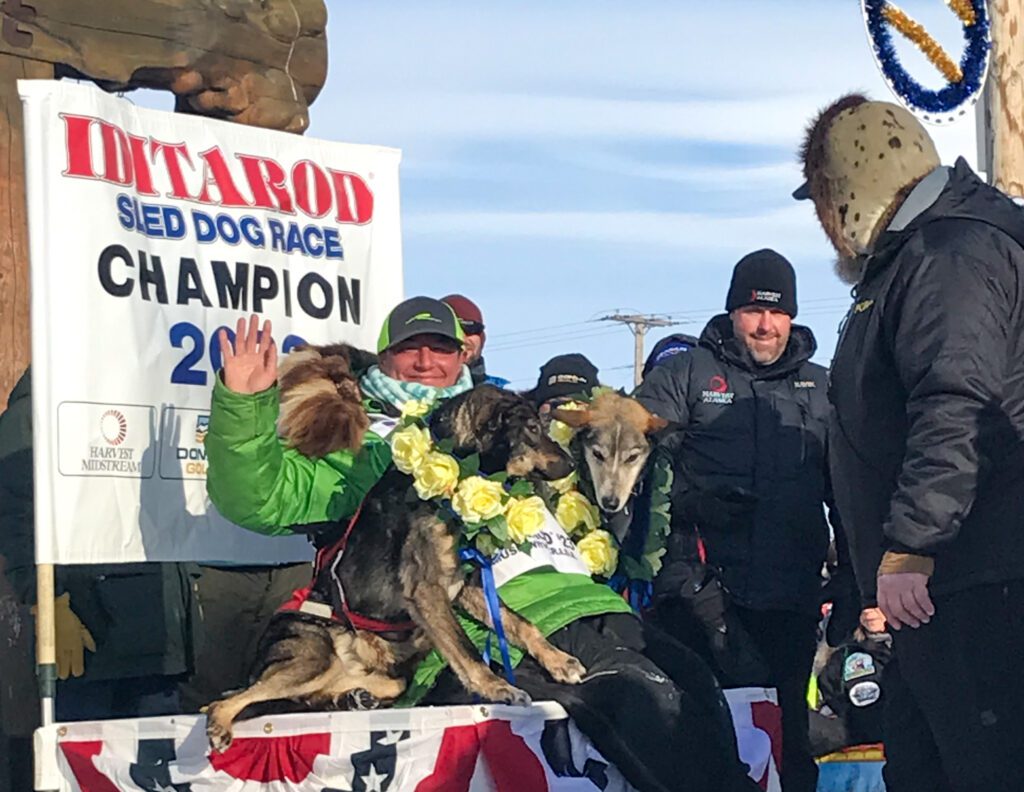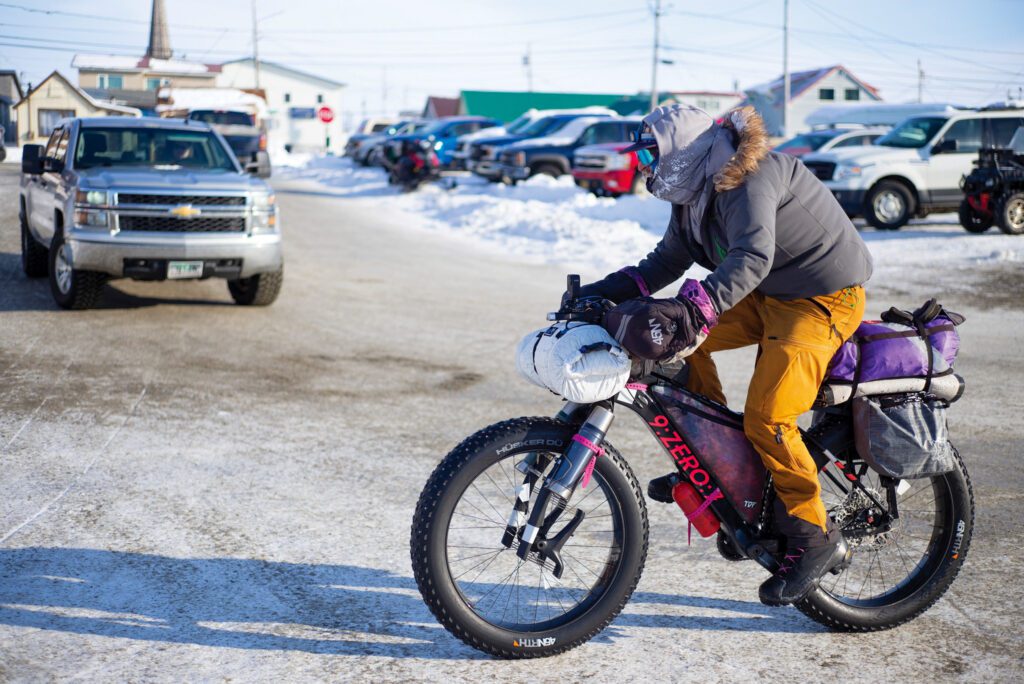This article by Lex Treinen was originally published by Alaska Public Media. It was republished with permission through a partnership with KNOM.
When Ryan Redington crossed the finish line in Nome on Tuesday afternoon, he became just the sixth Alaska Native musher to win the Iditarod in the race’s 50 years.
The two mushers on this year’s podium that finished behind Redington made the day even more historic: Pete Kaiser and Richie Diehl are also Alaska Native.
“It’s almost unheard of aside from some of the earlier days in the race when there was more participation from rural teams and Native teams,” said 2019 champion Pete Kaiser, who finished second in this year’s race.
Just four Alaska Native mushers started this year’s Iditarod. Mike Williams Jr. from Akiak is also competing.
Kaiser, who lives in Bethel, and Aniak’s Richie Diehl, who placed third, said they hoped their finishes inspire the next generation of mushers — particularly those in rural Alaska in a year that featured the smallest field in race history.
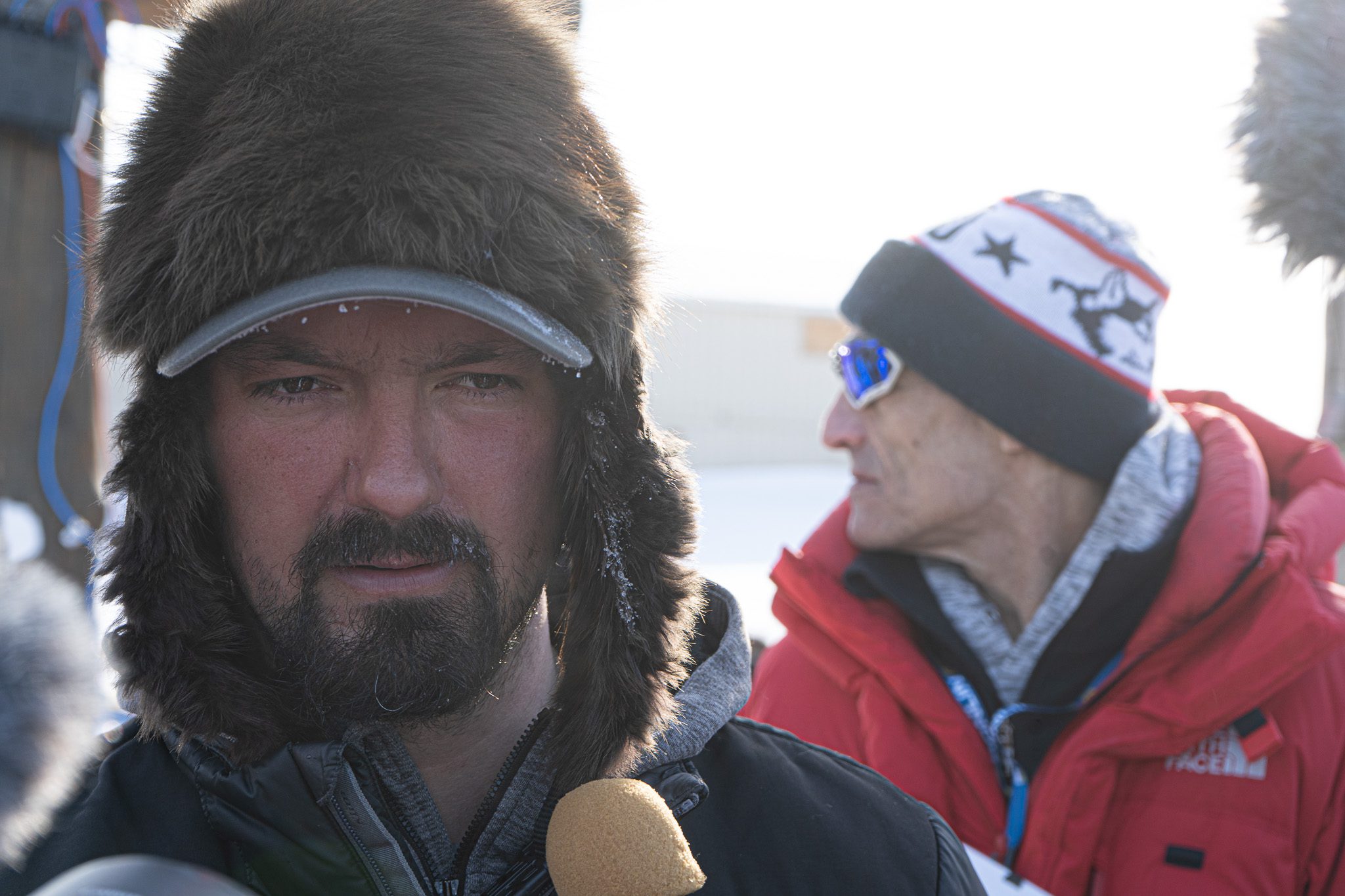
Redington, 40, joins a list of Iditarod Alaska Native champions that includes Kaiser, 2011 champion John Baker, Jerry Riley who won in 1976, Emmitt Peters who won in 1975 and Karl Huntington who won in 1974.
But for years dog teams off the road system in Alaska have been dwindling.
Diehl and Kaiser, however, live in the Yukon-Kuskokwim Delta, one of the few rural hot spots where major, competitive dog races still take place. The two young mushers are at the forefront of a resurgence of rural mushing. The prestigious Kuskokwim 300 race draws a large field, both local teams and others who fly in. They vie each January for the second-biggest prize purse for a sled dog race in Alaska. Both Kaiser and Diehl have won the K 300.
“We’re living in a day and age where in Aniak the price of gasoline is almost 9 bucks a gallon,” said Diehl. “It shows that in some parts of rural Alaska that mushing isn’t dying.”
Redington, Kaiser and Diehl consider themselves friends but competition was fierce in the race’s final third.
The three teams ran at a similar pace in the first half of the race, near the front of the field, and arrived in Kaltag within about 30 minutes of one another, with about 350 miles to the finish line.
Redington, whose mother is Inupiaq from Unalakleet, put in a marathon 85-mile run from Kaltag to Unalakleet to pry open a narrow gap. He surged again during a grueling 14-hour, 94-mile overnight run from Koyuk to White Mountain while Kaiser rested at the checkpoint halfway through the run in Elim. Kaiser said he knew his decision might let Redington slip away but his team needed the rest.
“Some years you can do that run if you’re set up for that, other years you can’t,” he said.
His rest in Elim allowed Diehl to catch him, and take over second place. Then Kaiser pulled away after leaving White Mountain early Tuesday, fresh off a required eight-hour rest.
Kaiser said he felt that Redington was particularly motivated for the win this year.
“I knew he’d be real tough to be coming up the coast. I knew he had a lot of motivation and determination to get it done, and we did too but there can only be one winner,” said 35-year-old Kaiser.
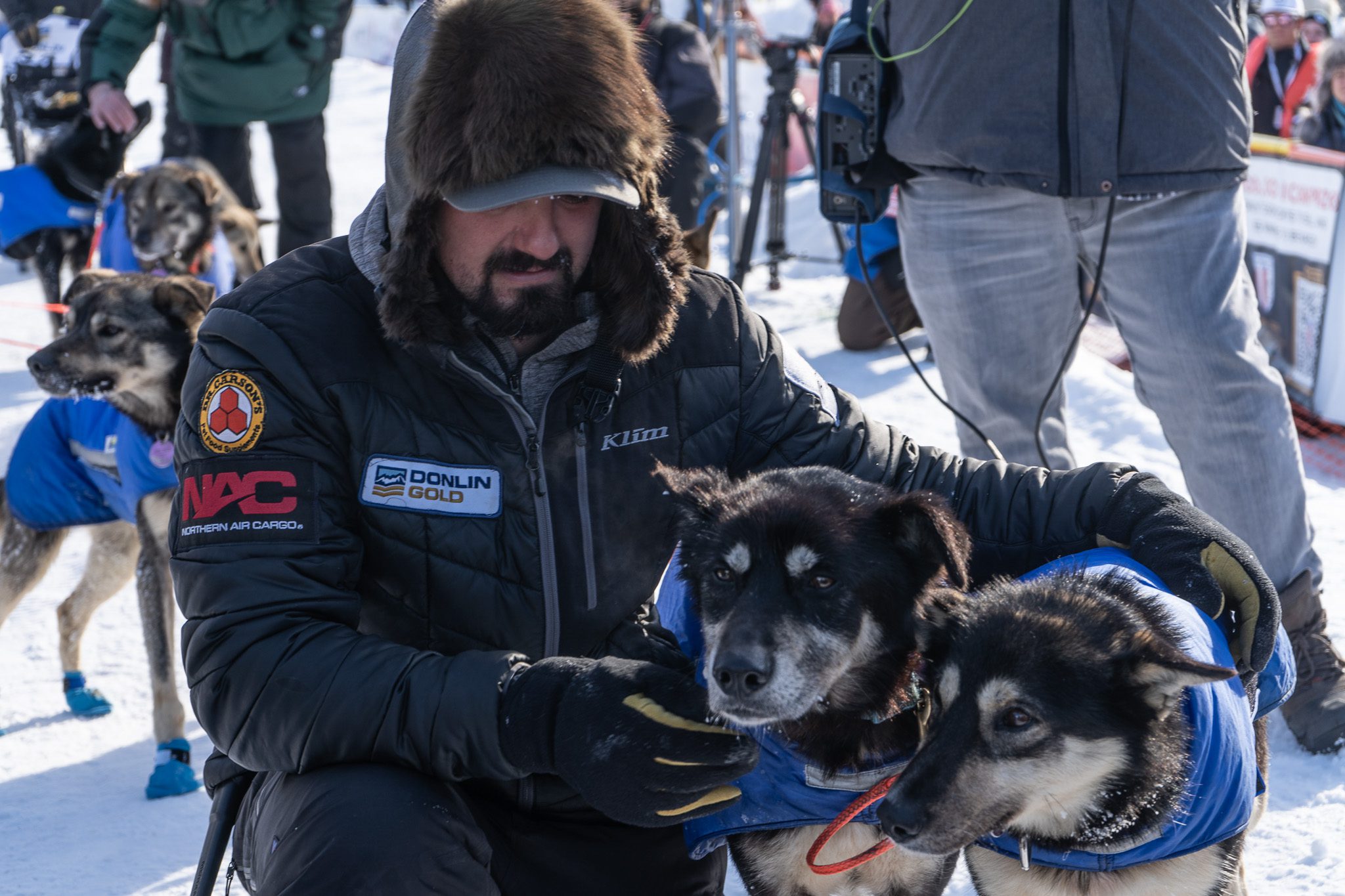
Still, he said, they were all friendly at checkpoints, trading stories and tips.
“We’re competitors but we’re a small group and we all know each other pretty well,” he said. “It’d be a long day if you weren’t friends with everybody.”
Diehl, 36, recalled some good-natured teasing at one of the checkpoints where he asked Kaiser how long he was planning to rest.
“He said something like, ‘I’m gonna see what my competition does,’” said Diehl at the finish.
Diehl’s third-place Iditarod finish is his best yet. Before, his highest finish was last year, when he got to Nome in sixth place.
Kaiser said while he was hoping for a win, notching a strong showing for rural and Alaska Native mushers was special.
“I think it’s great — hopefully inspiring to another generation of kids in the villages in rural Alaska or anywhere to take on a crazy sport like this,” he said.
Image at top: Richie Diehl and his seven-dog team arrive in third place in Nome on Tuesday. (Lex Treinen/Alaska Public Media)




